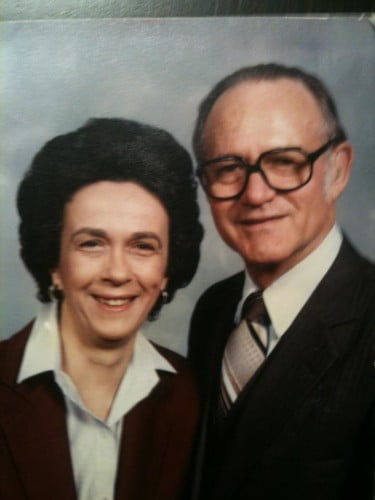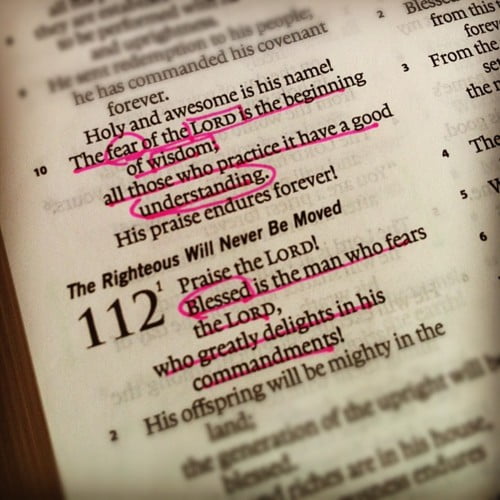Join me for a conversation with Psalm 63:1-8 . . .
Several years ago a dear friend of mine called me one day to say that she was dating someone new. The longest dinner date, she told me, turned into a dinner date the next night and they’d really been inseparable. And things got serious fast . . . already re-arranged their upcoming Christmas plans to spend the time with one another's families. While my friend sounded really happy (and so I was happy for her) the conversation jarred me.
Truthfully, it made my head spin.
But all I knew was that my friend couldn’t stop talking about her new love. I mean really talking about him. By the time I hung up the call I knew I could not only pick her fella out of a police line up if I had to, but I could write an essay on him too! I knew all about his tastes in flowers, his love of only the best ice cream (Blue Bell, she told me) and the fact that he always perfectly shinned his shoes before he left the house in the morning.
Though I was glad to listen, it almost felt like I was eavesdropping in on a private lovebirds conversation that wasn’t meant for me as she went on and on. I wasn’t in love with him, she was! But, how poetic he sounded!
In the same way as we read Psalm 63, we too might feel like we’re eavesdropping. For this Psalm presents us a conversation between two people who love each other very much. So it might feel to us a little bit awkward too.
For David speaks of a relationship he has with God. And it’s his relationship. But not ours (or is it?)
He begins by saying this about the Lord: “O God, you are my God, I seek you, my soul thirsts for you; my flesh faints for you, as in a dry and weary land where there is no water.”
Dramatic opening sentence isn't it? I don’t know if you’ve ever tried to go without liquids or water for a long period of time. But you simply can’t. Science tells us that our bodies are made up of 60% water and we can only go without for 3 days until they begin to shut down. Dehydration can seriously kill. So what a vivid point!
He can not live without God. And it’s not an intellectual pursuit. It's a pursuit of the actual presence of God.
For David feels confident in the One in whom he adores saying in verse 2, “So I have looked upon you in the sanctuary, beholding your power and glory.” May commentators say that David was actually writing from the sanctuary, otherwise known as the temple, one of the holiest place in Judaism. And possibly that David was staying up all night praying, seeking answers from the Lord. But then there are others who believe that this phrase “looked upon you in the sanctuary” was just as expression of closeness.
May commentators say that David was actually writing from the sanctuary, otherwise known as the temple, one of the holiest place in Judaism. And possibly that David was staying up all night praying, seeking answers from the Lord. But then there are others who believe that this phrase “looked upon you in the sanctuary” was just as expression of closeness.
And as a result, he’s got to get his praise on.
Verse 3: “Because your steadfast love is better than life, my lips will praise you. So I will bless you as a long as I live; I will lift my hands and call on your name.”

Bottom line: David's longings have a physical component. David can’t help but speak words about God from his mouth.
David can’t help but turn his posture in response to what the Lord has done in his life.
David can’t help but lift up his hands simply say, “Thank you, God” for giving him life.
So much so that verse 6 David goes on saying about the Lord: “I think of you on my bed, and meditate on you in the watches of the night; for you have been my help.”
I love this part of the Psalm for it’s so practical. I can just imagine David lying down on the ground and having the thoughts of God consume him making him unable to sleep. Tossing and turning filled with joy.
And it’s awesome language isn't it?
In fact, I dare say that these words of David might just overwhelm us.
Why?
Maybe in the same way as we encounter the “my new man or my new woman” is the greatest thing since sliced bread soliloquies from our friends . . . We don’t know God like David knows God.
For as much as our resume says we’ve been a member of a congregation since cradle roll . . .
For as much as our day planner says we’ve been committed to a particular church and its activities for years . . .
For as many songs we’ve sung, prayers we’ve prayed and sermons we’ve heard, we might just land in the place with Psalm 63 as our mirror and have one response:
I don’t know a God I’d thirst for in a dry and weary land where there is no water . . ..
A God I’d hunger for until my soul is satisfied with a rich feast . . .
A God I’d stay up late into the night for. . .
I don’t know a God like this.
Maybe those who do know, we believe are only the religious types like nuns or priests or pastors. Maybe it's for the more spiritual minded or expressive ones in the pews (and that's not us!).
For as many hours in my life I spent as a good church kid to the days and days of coursework in seminary and then to the years and years of full-time employment with the church—there was a moment in my life a couple of years ago where I realized I didn’t know. I too didn't know.
I didn’t know the God David speaks of.
Sure, I knew a lot of facts about God.
Sure, I knew how to lead organizations of God.
And sure, I’d committed to a relationship with God through my baptism and ordination vows years before. I voiced prayers on a weekly basis. And of course I wouldn’t have called myself anything other than a Christian. But I didn’t know. I didn’t really know.
And for this reason, I rarely preached on the Psalms. All of them sounded too much like one of those “Jesus is my boyfriend” worship songs I called annoying. Plus, so many of the Psalm felt bi-polar: “I love you God” in one verse and “God you’ve despised me to my enemies” in the second. Couldn't the Psalm writers just make up their minds already?
But through deep valleys of some of the hardest imaginable experiences in my life (the hard stuff we all go through if we live long enough), I started to read the Psalms again.
And from reading them and talking about them with friends, I uncovered a life changing truth: God of the universe, the God of all of creation, the God of all of the heavens loved me. Yes, loved me very much.
God loved me, Elizabeth Hagan.
 And when I began to “get” this . . . when I began to really get this, my only response was, “O God. You are my God. I seek you. My soul thirst for you.”
And when I began to “get” this . . . when I began to really get this, my only response was, “O God. You are my God. I seek you. My soul thirst for you.”There are really no other words (if words at all!)
When we know God loves us our bodies just want to sing with gusto, lift up our hands, and shout in thanksgiving. And we might just shed a tear or two.
In fact, this is why I believe that David ends with this particular description of God in verse 7: “For you have been my help, and in the shadow of your wings I sing for joy. My soul clings to you; your right hand upholds me.”
Do you hear the personal pronouns in this passage?
For YOU have been MY help.
I will sing for joy.
MY soul clings to you.
It's not that the larger community isn’t important (No we just have to read some of David’s other corporate Psalms to see how strongly he feels about this!) or that we don’t have acts of service to do out in the world.
BUT, David’s models for us the personal nature of knowing God. For, life with God is always about our being loved individually.
The God of the universe wants to satisfy your soul with a rich feast! Really. What an amazing invitation!
It's good news. It's really the best news of all.
A Sermon Preached: Psalm 111 A sermon preached in Chautauqua Institute Baptist House
![[ File # csp5262413, License # 1720724 ] Licensed through http://www.canstockphoto.com in accordance with the End User License Agreement (http://www.canstockphoto.com/legal.php) (c) Can Stock Photo Inc. / payphoto](https://elizabethhagan.com/wp-content/uploads/2015/08/wisdom-sign-500x373.jpeg)
We are new to one another this morning as preacher to congregation, but l wanted to let you in on a secret about me.
Though I’ve been ordained for almost 10 years, this is the only second time in my preaching life I’ve ever selected a Psalm for the focus text of a sermon.
The first and only other time I’ve preached on a Psalm, it was #51, the famed confession text from King David “For against you and you alone have I sinned” after his affair with Bathsheba.
And because Psalm 51 so closely aligns with a story from the historical books, I don’t think it really counts . . .
For the Psalm are lovely and beautiful prayers, make good texts for choral anthems, and are texts that we hold close to us when times get rough.
But as far as preaching, from my perspective, it’s a whole other story.
My fear of what to do with Psalm passages that go from “Great is the Lord, the whole earth is full of his glory” in one breath to the “O God go down and smite my enemies in the next” has kept me from them.
For some of the Psalter passages can feel a bit bipolar if we you sit with them long enough. And being an organized sort of person confusing texts are really not my thing.
This morning, though, just for you, I’m taking the plunge in response to sitting with the words of Psalm 111 this week.
It’s a Psalm that gives us language to speak about God. It’s a Psalm that gives us a description of how God both exists and dwells with us. And, it’s a Psalm that most commentators say could be summarized, as “God’s resume” if there’s ever was such a passage.
And most of all it’s a Psalm that leads us to the word: wisdom.
Have you ever been asked to give an introductory speech for someone who was going to win an award or give a presentation?
It can be quite a daunting task can’t it? Especially if it was someone whom you really like (or you don’t)
It’s difficult to know what direction to take the speech. Should you start with a joke? Should you tell an anecdotal story? Should you make something up if you don’t have anything nice to say?
For nothing is worse than a bad or most of TOO LONG introductory speech, right? Times when you just want to cue the “get off the stage” orchestra music in your head . . .
I can imagine similar pressure faced the original writer of Psalm 111. Though we do not know the identity of the one who penned this text, we do know its purpose: a litany for worship. This text like countless other Psalms like it existed as a corporate song/ prayer for worship.
And for the Psalmist, only just the right words would do.
The Lord needed to be praised rightly! Everyone needed to know of God’s splendor.
And as we begin reading what we hear is of some of his efforts to put thoughts into words:
“Great are the works of the Lord . . . full of honor and majesty . . . He has gained renowned by his wonderful deeds; the Lord is gracious and merciful.”
The Psalmist wants us to know that the Lord is a good God who shows love through actions.
There is no need too small of ours too small that does not concern the Lord. For example, we are told that according to verse 5, the Lord gives food.
In the same way that Jesus would later ask us to depend on God in prayer: “Give us this day our daily bread.” We learn that God cares about our daily nourishment.
Moreover, in verse 6 the Psalmist also wants us to know the vastness of who God is!
Proclaiming: “He has shown his people the power of his works.”
For, God is not someone who is like us, who is limited by the confines of time and space. No, God is full of glory. God can do whatever God wills.
And most of all, the Psalmist writes of how God longs to be close to us!
We are told in verse 9 that “He sent redemption to his people; he has commanded his covenant forever. Holy and awesome is his name.”
Our God is invested in relationships. God is not a deity that lives out there far away who is untouchable for us mere humans, but our God longs to know US individually.
God longs for peace among the nations. This is why “He sent us redemption.” God cares about our life together in community, both with God and with each other. We are not left alone on earth to simply fend for ourselves. God helps us love each other.
So with all of this true, the climax to the Psalter comes in verse 10 when we hear these words that probably are familiar to you, “The fear of the Lord is the beginning of wisdom.”
Or, in other words, congregation: listen up, here’s the important thing you can do in life: know God. Why? Because your outlook on life depends on it!
Let me say it again, “Fear of the Lord is the beginning of wisdom.”
Wisdom, though it’s one of those words, at least in church circles I run in that is associated with God’s character. What about yours?
When I say wisdom, what first comes to mind?
For me it’s a picture of someone with grey hair.
As a Proverb goes, “Gray hair is a crown of splendor; it is attained in the way of righteousness.”
But maybe we have the whole grey thing wrong . . .
Wisdom might be something more.
When I was a child, I looked forward to the weeks in the summer, I would travel from my home in Chattanooga, TN to Nashville, TN to spend time with my grandparents: Gran and Granddaddy, two of the kindest most generous people I’ve ever known in my life.
I’d come visit them without my sister in tow (such a treat) then I’d go to swimming lessons at their YMCA or attend basketball camp at Vanderbilt, hoping to be the next college star player one day (which of course didn’t happen but I still had fun).
 I loved how special Gran and Granddaddy would make me feel.
I loved how special Gran and Granddaddy would make me feel.
They’d buy me all my favorite foods. My grandmother would even iron the sheets on my bed, making it feel heavenly to go to sleep at night. (Who does that?) I especially loved how she’s come tuck me in at night rubbing my back till I fell asleep and talking to me about whatever I most felt like saying.
I can remember one such chats when we got on the subject of grey hair. In my childish innocence, I asked Gran about her salt shaker, black and white hair and why it was so “two toned.”
No look of horror came over her face (God bless her soul) for my strange question.
But she went on to describe that the grey in people’s hair often came as they got older. Still, I was curious about how you “got it.” I’d heard from someone who grey hair equaled smarts.
And this is what she said: “Grey hair is not only about getting older, sweetheart. But when I look at my grey hair in the mirror, I think about how God has watched over me my whole life. God is good.”
I heard her that night: age does not necessarily equal wisdom, nor does a head of grey hair.
But wisdom had everything to do with whom God is and how we’ve come to know God in our lives.
Most of all wisdom gives us perspective.
Several years ago, I read a Huffington Post article by popular Christian blogger and author, Momastary otherwise known as Glennon Doyle Melton, a young mom in her 30s.
She wrote about a time in her life when everything was crumbling around her. Her marriage headed toward separation She’d not fully overcome her battle with bulimia and her faith felt just as unstable as she looked on the outside.
Yet, one day she found herself in church sitting with a group of women who were all at least 20 or 30 years older than her.
Being an extremely outgoing person, Glennon was first to speak up and spew out the details of her troubles when one of the church ladies looked at her and said, “Girl, what is going on with you?”
Glennon talked and talked. Every panic of her heart came out almost without a breath.
She writes of one of the women, Bette:
She was not listening to me with wide eyes and OMGs! And NO HE DIDN'TS! like friends my own age do. I was getting very little feedback from her and in fact -- she looked sort of bored.
So I said, "Bette, are you listening to me?"
And she said "Oh, honey. Yes. I'm listening. And I'm sorry I'm not getting worked up with you. But the thing is that this stuff isn't personal sweetheart- it's just LIFE. You'll make it through."
She gestured toward a circle of her white-haired friends and added, "all of us have." Then she squeezed my arm and went to pour us some coffee.
They knew life and life with God in a way in which Glennon did not. It was a shock back into reality the bigger picture of all her trouble.
Such was the experience of being with wisdom: perspective.
And so yes, she would find her way through this difficult time. All would be well. All matter of things would be well.
The wisdom of these older friends helped her to see.
 Such is exactly what the Psalmist is hoping that his congregation will realize.
Such is exactly what the Psalmist is hoping that his congregation will realize.
That when we know who God is we become wise. And it is this wisdom that helps us take the experiences our lives offer us and move through them with a different kind of being.
Or as one very good friend of mine often says to me when I get stuck in life (which is a lot):
“Know God, Elizabeth. Start there. And then you’ll see what to do next. You really will!”
This week, we’re all gathered at this beautiful place called Chautauqua, a week that is so many us of a highlight—a week to learn, and a week to take in knowledge from some of the best teachers that this world has to offer.
And it’s a week when we get to walk these ground where scholars, teachers and world changers have walked before us and gone forth from this place doing amazing things for the good of others.
I have to think that we’re all ready on this Sunday morning to gather as much knowledge that we can in the days ahead.
But, as we begin might be good to stop and consider HOW we are beginning. What are we really here for? What is the real source of this wisdom that we all crave?
The fear of the Lord is the beginning of wisdom.
BUT, is truth is such is all rubbish in comparison to the One is Lord of all.
The one in whom we are asked to praise, we are asked to say thank you to, the one that we are to name as our Creator God.
Do we want to be wise?
The fear of the Lord is the beginning of wisdom.
And wisdom is not just for grandmas after all. It’s available to us all.
AMEN